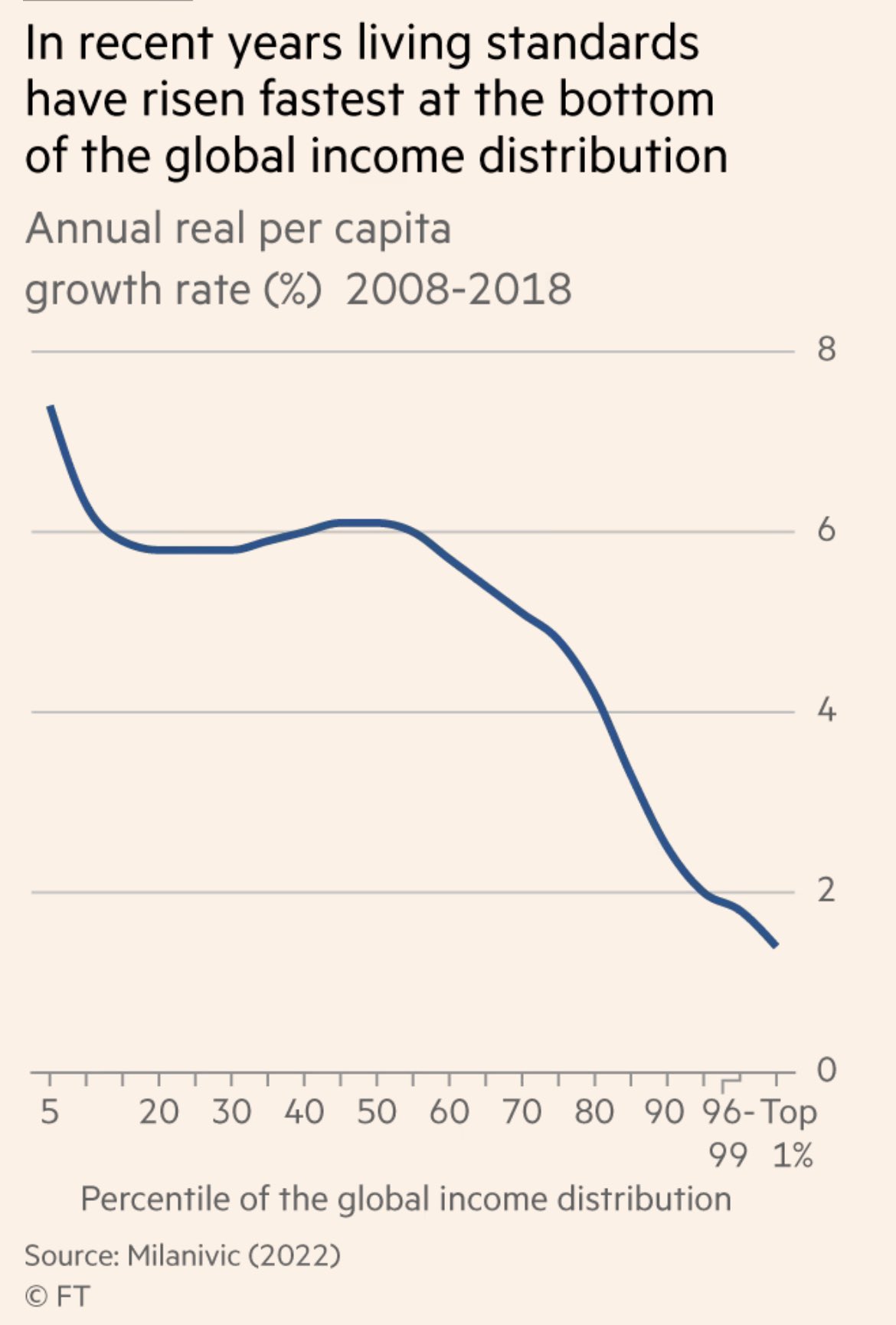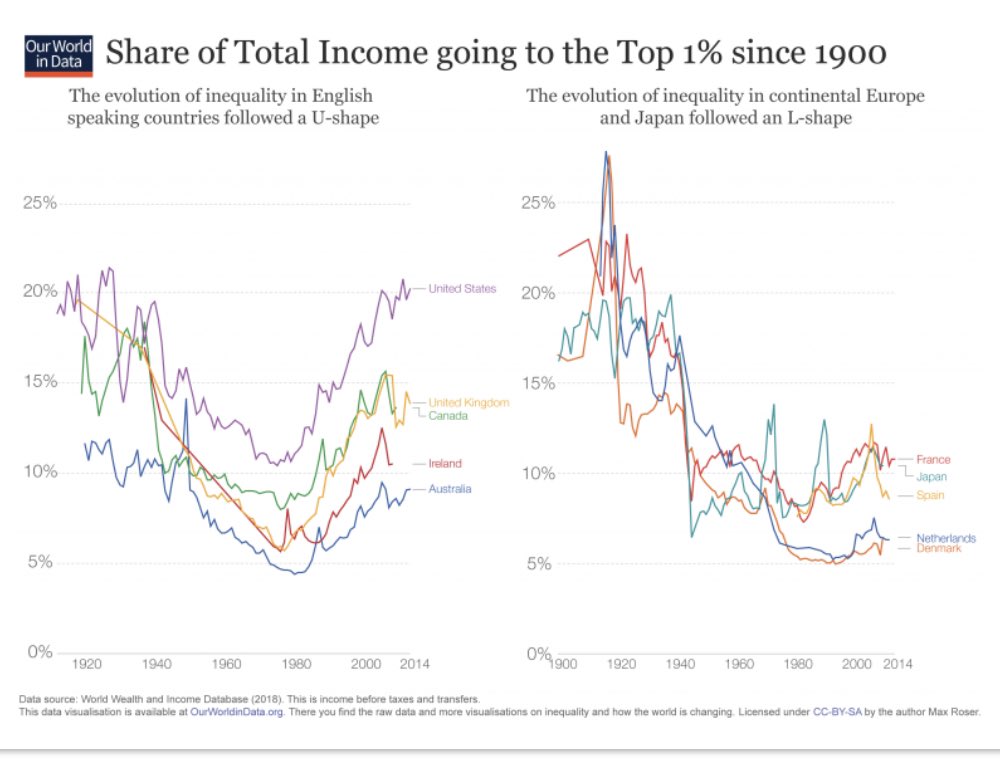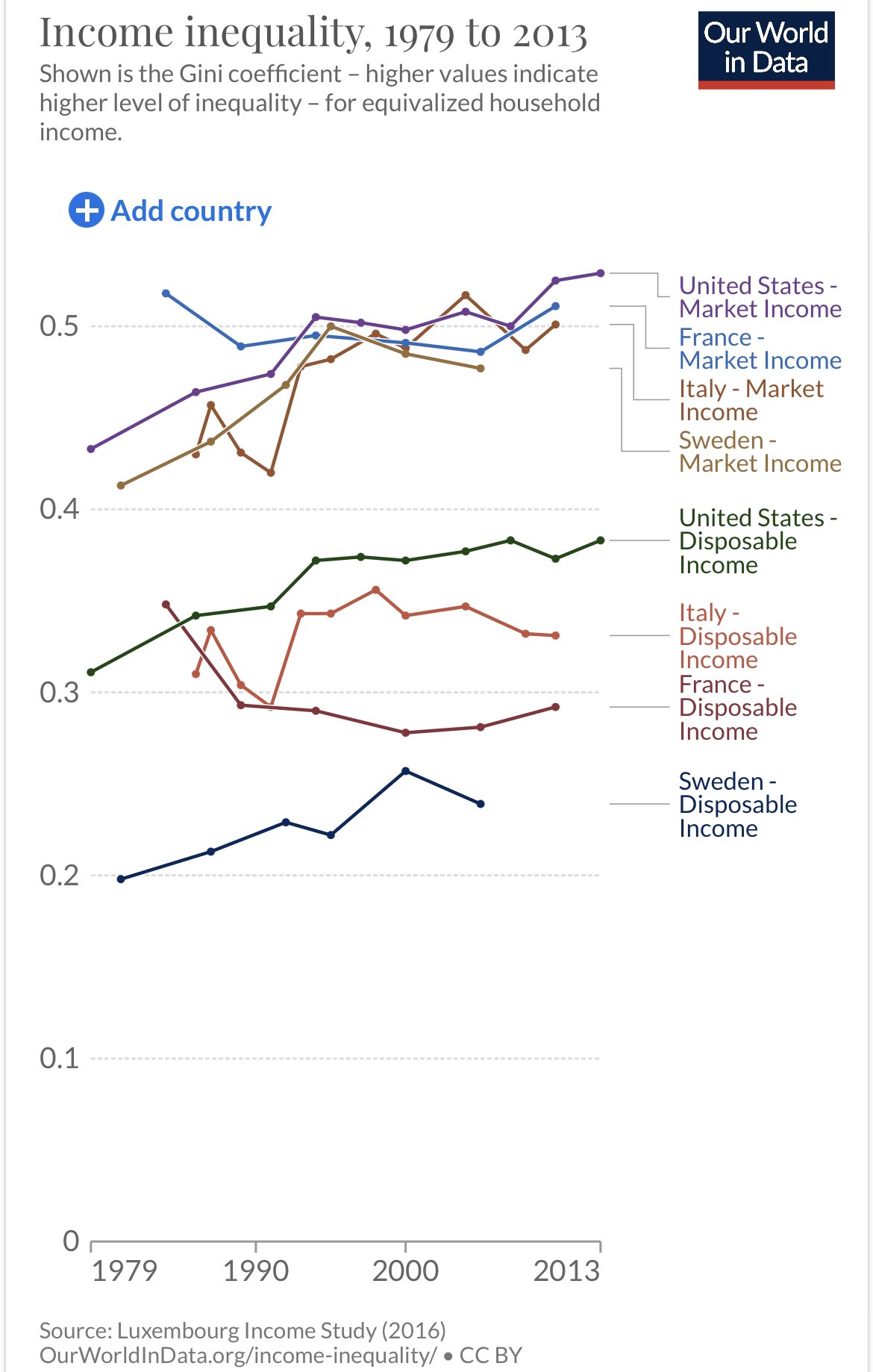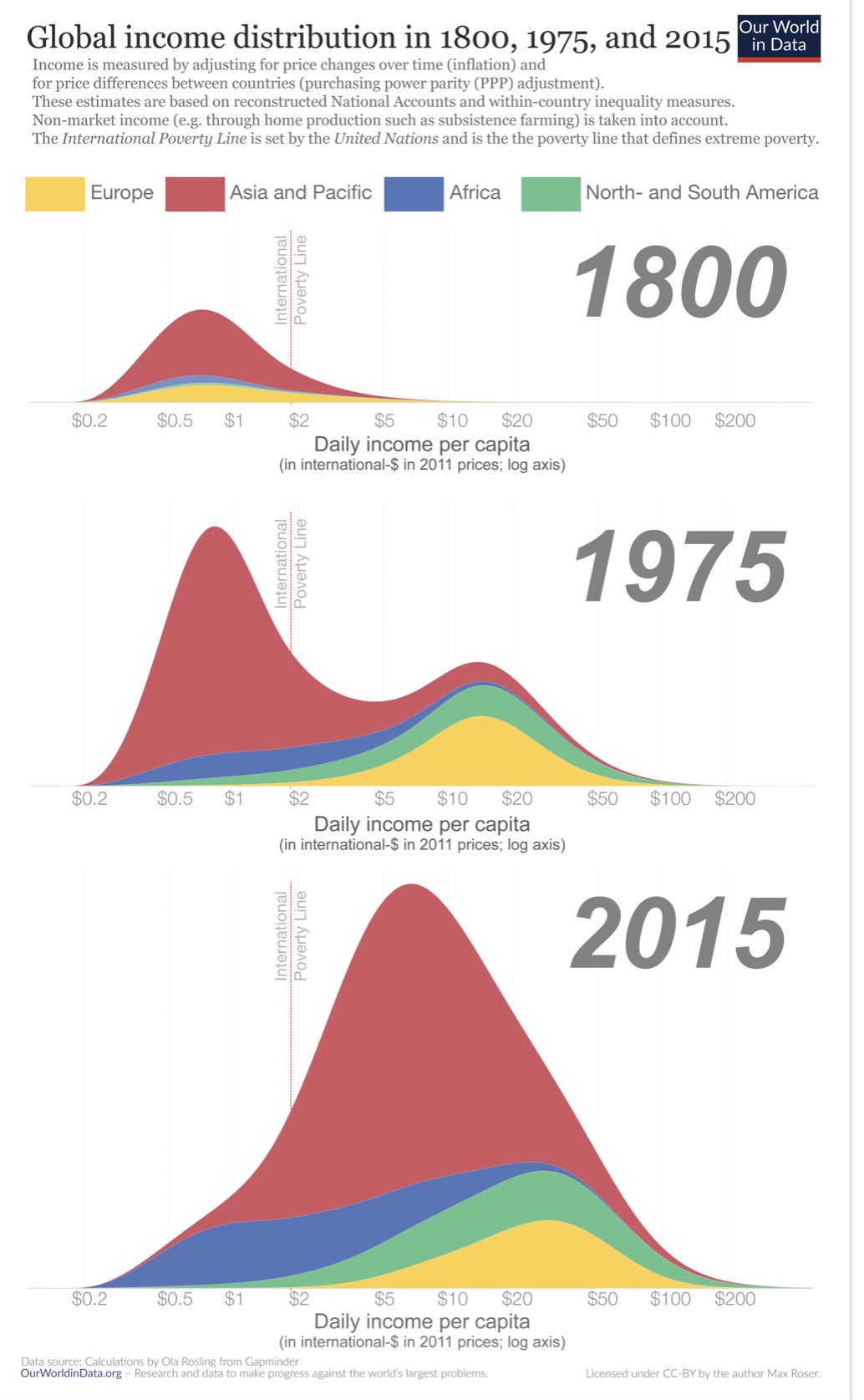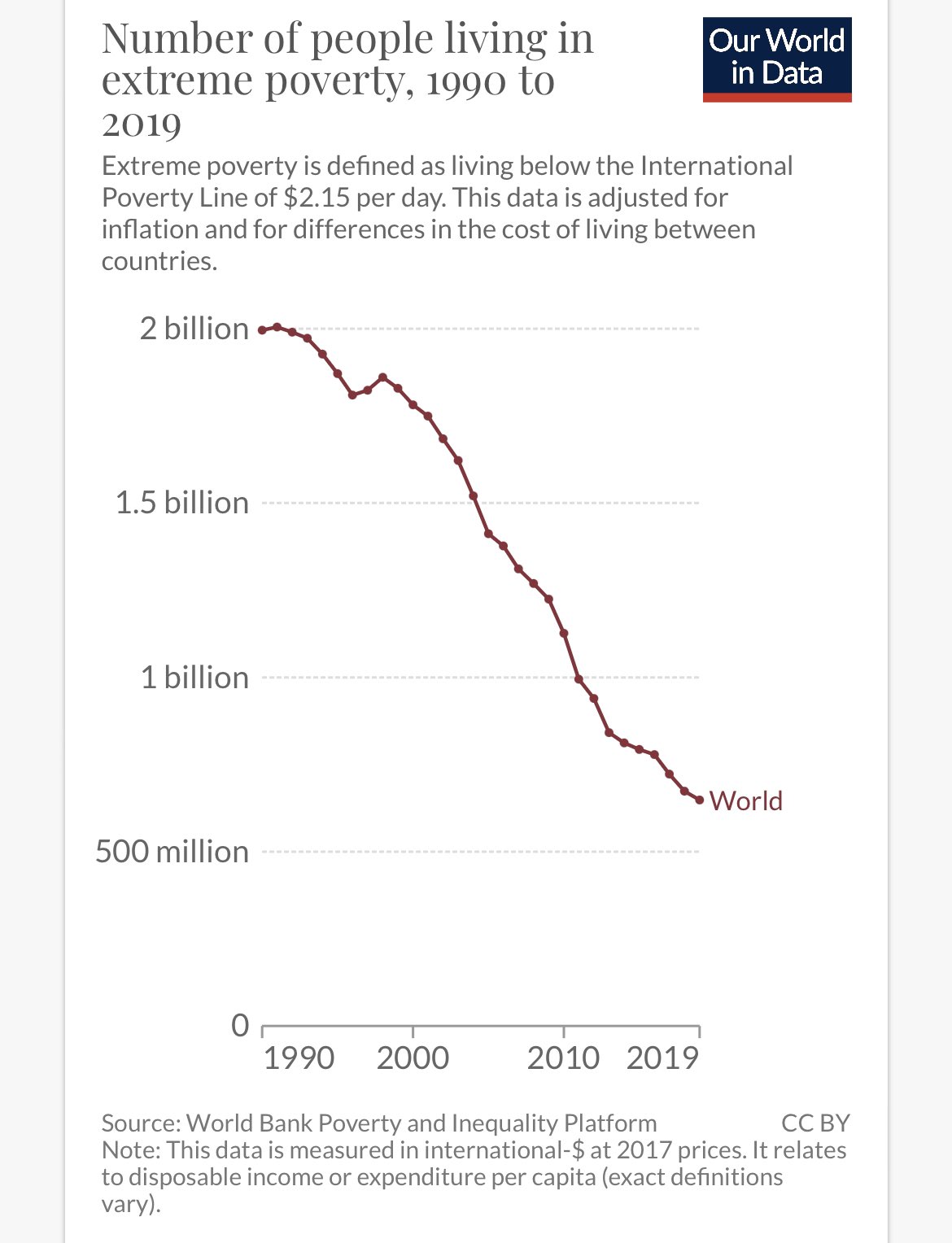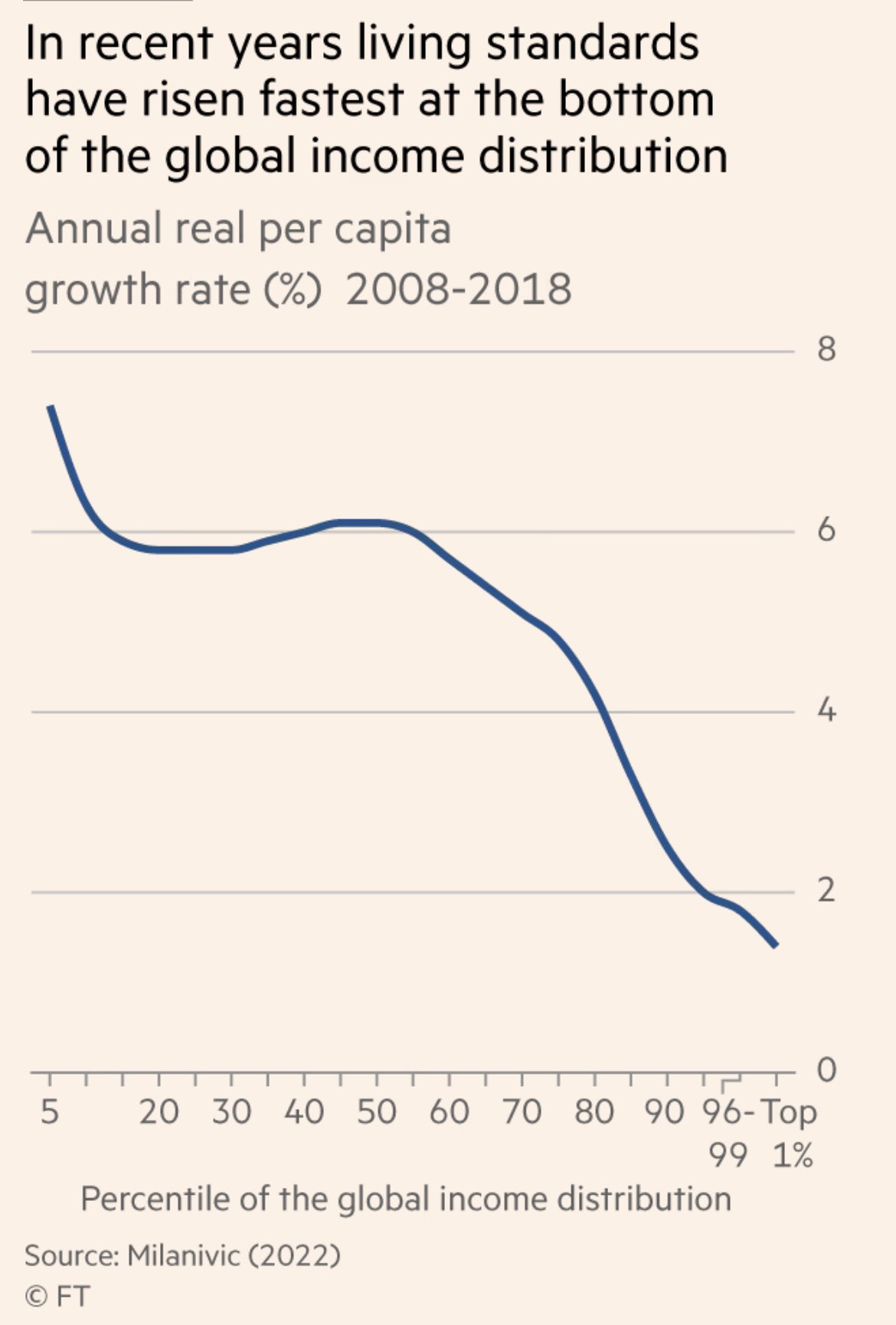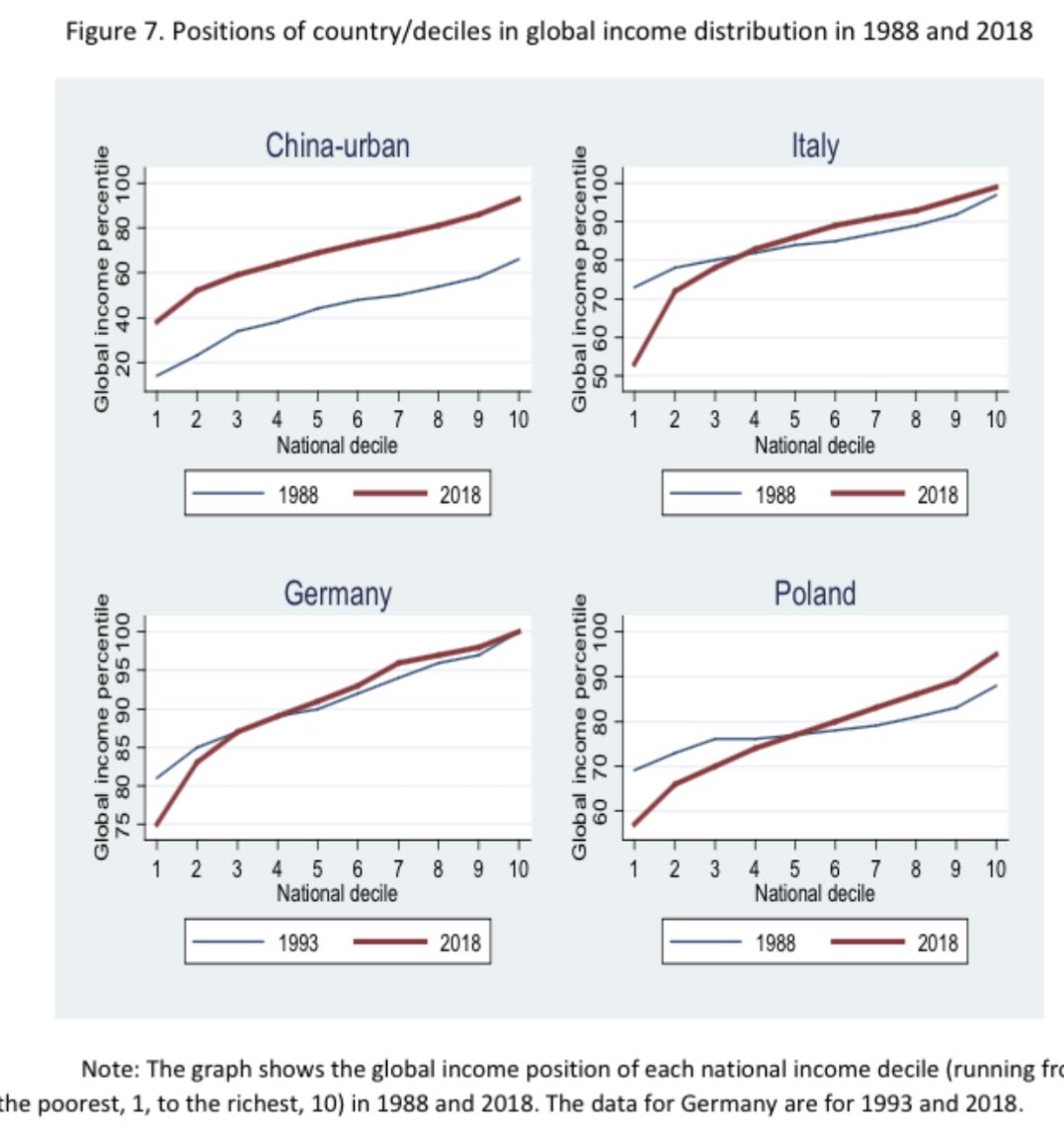Thread
1/ Globalisation drives inequality? It’s complicated
•
A 🧵 based on @ft article by @ChrisGiles_ & research by @BrankoMilan etal
•
👉on.ft.com/3V2Ftva
👉osf.io/preprints/socarxiv/yg2h9/
•
A 🧵 based on @ft article by @ChrisGiles_ & research by @BrankoMilan etal
•
👉on.ft.com/3V2Ftva
👉osf.io/preprints/socarxiv/yg2h9/
2/Rampant, within rich-nation inequality was always an American/Anglo-Saxon story
•
Other rich nations bridled the rise of their 1%
•
Booming American inequality started with globalisation’s 2nd unbundling (manuf offshoring expansion phase) www.hup.harvard.edu/catalog.php?isbn=9780674660489
•
Other rich nations bridled the rise of their 1%
•
Booming American inequality started with globalisation’s 2nd unbundling (manuf offshoring expansion phase) www.hup.harvard.edu/catalog.php?isbn=9780674660489
3/ Automation & globalisation drove market income inequality everywhere, but Europeans used sharing & caring policies to share the gains & pains (US not so much)
•
Gini coefficient chart👇
•
Gini coefficient chart👇
4/. And between-nations inequality?
•
Here globalisation &automation during the 2nd unbundling were a SMASHING success
•
👉billions join the global middle class
👉extreme poverty plummets (1.4bn out of extreme poverty)
•
Here globalisation &automation during the 2nd unbundling were a SMASHING success
•
👉billions join the global middle class
👉extreme poverty plummets (1.4bn out of extreme poverty)
5. But since 2008, Branko’s elephant kneeled & lowered its trunk
•
poorest families rose fastest (+7%), global middle class (+6%) middle incomes & global elite paltry (+2%)
•
But beware of individual shifts within the distribution…
•
poorest families rose fastest (+7%), global middle class (+6%) middle incomes & global elite paltry (+2%)
•
But beware of individual shifts within the distribution…
/ Milanovic: past 30 yrs was “greatest reshuffle of individual income positions since the Industrial Revolution” www.huffpost.com/entry/economic-power-west-asia_b_7849724/amp
•
Examples in sequel👇
•
Examples in sequel👇
“poorest Italian families were in top 30% of the world’s distribution in 1988, but now barely in the top half”
•
“Lower-income urban Chinese households, who came close to the bottom of the global distribution in 1988, now enjoy living standards above the global median”
•
“Lower-income urban Chinese households, who came close to the bottom of the global distribution in 1988, now enjoy living standards above the global median”
“This requires us to modify thinking about globalisation. With Chinese & E.Asian incomes above world median, higher avg living standards will increase global inequality unless there are income gains in rural India & Africa — a much harder ask” @ChrisGiles_
•
@BrankoMilan quote
•
@BrankoMilan quote
Mentions
See All
Branko Milanović @BrankoMilan
·
Nov 25, 2022
Very nice thread!

